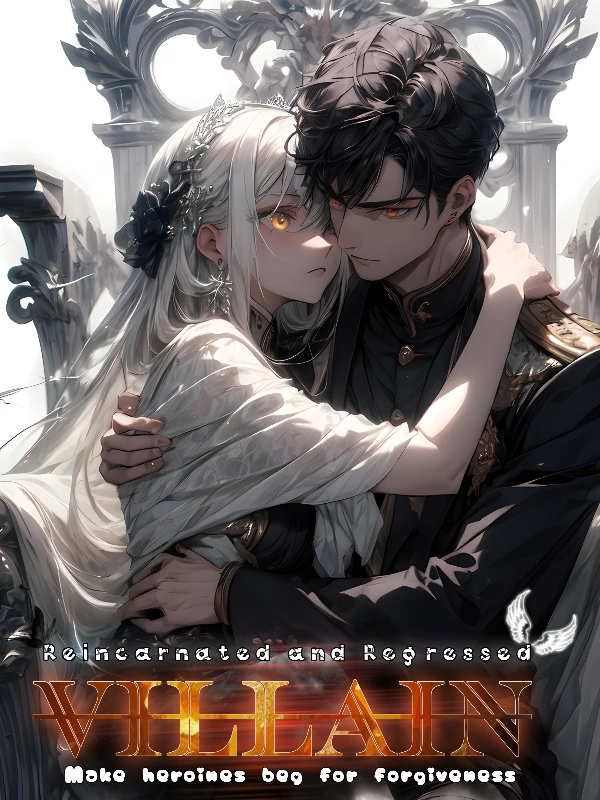Chapter 63: Iron and Blood, Golden Freedom (3)
Translated by Vine | Proofread by Lust
For the latest updates, visit: ProNovels.com
Join our Discord for release updates: https://discord.gg/Eh2ayfR4FB
< German Civil War – Iron and Blood, Golden Freedom (3) >
November 19, 1939
Central Germany, 9th Military District, Kassel, Frankfurt
Four days had passed since the launch of the operation disguised as a deployment ceremony.
The speech we had meticulously crafted seemed to have had a greater impact than anticipated. According to the Abwehr’s reports, the Wehrmacht’s morale was practically non-existent.
It was fortunate that the demoralized Wehrmacht was more likely to surrender. While I had initiated this civil war and was prepared for casualties, minimizing unnecessary bloodshed was paramount.
I especially hoped that those I felt personally responsible for—Model, Richthofen, Clemens, and Michael—would surrender, but there was no news of that yet.
Manstein’s offensive was proceeding smoothly. At least according to him, the enemy seemed oblivious to our intentions.
Despite his inexperience with armored warfare, General Hammerstein-Equord had successfully drawn out the enemy’s main armored force with minimal losses, and General Lutz was advancing rapidly past Dresden.
Moreover, with the defection of the 4th Army of Army Group North to our side, Berlin was practically half-surrounded.
“I hope it ends like this, but it’s going so smoothly that I’m getting worried.”
The pressure to end the civil war quickly and with minimal casualties weighed heavily on me.
Even with successful propaganda and a smooth operation, casualties were still mounting while I sat here relatively comfortably.
The Nazis had few cards left to play. The Luftwaffe was the main concern, and our ability to counter them was limited.
I could only hope that Richthofen wasn’t insane enough to rain incendiary bombs on the heads of innocent German citizens.
While he was known as the “master of incendiary bombing” and had undoubtedly been morally compromised, he was still a patriot, deeply attached to the Luftwaffe.
I clung to the hope that he wouldn’t massacre German citizens and drag his subordinates down with him as war criminals in a losing war.
“Don’t say such ominous things. Besides, you’ve become quite the celebrity, State Secretary.”
Claudia chuckled at my mumbling and handed me a stack of telegrams.
“Ah, thank you, adjutant.”
Just a few months ago, I was a mere captain, and now I was receiving telegrams from prominent figures in other countries as a high-ranking official of the New Government.
It had been only two months and fifteen days since the start of Operation Widerstand. A tense and relentless period.
While my meteoric rise was somewhat disconcerting, the deployment ceremony speech had resonated not only domestically but also internationally.
[I had heard about you from Crown Prince Louis Ferdinand, but your speech was even more impressive than I had anticipated. I would be interested in meeting you if the opportunity arises. I hope your nation’s struggle against tyranny and for freedom will bear fruit soon.]
This was from FDR, President Franklin Delano Roosevelt of the United States. When I first arrived in this era, I couldn’t have imagined receiving such a message from the renowned American president.
Knowing the sheer scale of America’s power, and as a major exporter of oil, a resource Germany desperately needed, maintaining good relations with the United States was crucial. Thanks to the Crown Prince and my speech, it seemed I had made a good first impression.
The problem was, I now had no idea how the United States would act in the future.
The sleeping giant, the United States, had started to awaken as the “arsenal of democracy” while watching Hitler and the Axis powers sweep across Europe and had fully joined the Allied forces after the attack on Pearl Harbor.
With Hitler’s imminent downfall, the future actions of the United States, with its immense power, were unpredictable.
While this was a matter for the Foreign Ministry, unlike Britain and France, whose actions could be somewhat anticipated based on their European interests, the United States was a complete wildcard, and far too powerful to be ignored.
The attack on Pearl Harbor itself was a case in point. The Japanese Empire’s decision to attack Pearl Harbor had been influenced, in no small part, by the stunning successes of Hitler and the Axis powers in Europe.
However, Nazi Germany, the core of the Axis powers, was on the verge of collapse before the Axis powers had even been formally established. The Japanese Empire’s future actions were also uncertain.
Of course, I had no intention of leaving the Japanese Empire and their colony, Korea, alone, regardless of their actions. Fortunately, my father, Hjalmar Schacht, and Falkenhayn, who was currently in Germany, had connections with high-ranking officials in the Republic of China, who in turn had ties with the Korean independence movement.
However, as a nation embracing democracy, we had to act in a way that our people would find acceptable, which was a headache.
While I currently held the position of State Secretary of the Ministry of State, a position far beyond my age and experience, it was due to Wilhelm III’s favoritism and the unique circumstances of the wartime emergency cabinet.
It was a position that needed to be abolished immediately after the war if we truly wanted to establish a democratic nation.
There was so much to think about.
[You’ve given that bastard Hitler a good thrashing, State Secretary. You’re better than those so-called democratic politicians.]
Churchill’s telegram, amidst all my worries, brought a smile to my face. It was so quintessentially Churchill.
I was also pleased to receive messages from various other countries, especially from Finnish President Kyösti Kallio, expressing his deep gratitude and assuring me of Finland’s resolute resistance.
The Winter War was imminent. I hoped it would begin after our civil war concluded…
“This is the real problem.”
The telegrams from Britain and France, addressed to the New Government, were almost identical.
Whether they had coordinated or not, they offered similar platitudes, expressing their hopes for our success against the fascists and urging us to establish a democratic government after the civil war and swiftly resolve the issues of “other nations” under German control.
Establishing a democratic government was a simple matter of holding elections after the war, regardless of their concerns. The Zentrum, SPD, and DDP, the key political parties of the Weimar era, were already preparing for the elections.
The “other nations” part was the problem.
While there were those within the New Government who favored retaining the Protectorate of Bohemia and Moravia, Czechoslovakia wasn’t ours to keep. Annexing it would instantly turn international opinion against us.
However, simply relinquishing it under pressure from Britain and France without gaining anything in return was also unacceptable. The end of the civil war would be the true test for the New Government, for the new Germany.
Ousting Hitler wouldn’t magically erase all those enthralled by Nazism, and eastern Austria remained under Nazi control.
While they didn’t pose an immediate threat, lacking the influence to incite the Austrian population to attack us, we were simply leaving them be for now, as we were preoccupied with the Italian front.
Despite their initial blunders, Italy was still a major power. Their poor performance wasn’t necessarily due to a lack of capability, but rather their underestimation of the Austrian defenses, leading them to launch a hasty and ill-prepared invasion.
Enjoying the translation? Stay updated with the latest chapters at ProNovels.com.
“Even with everything going according to plan, we’re still walking a tightrope.”
“What did you expect? We knew this going in, didn’t we?”
I chuckled at Claudia’s words and stood up. I had to accompany His Majesty, the Emperor, whom I loathed, today.
We were scheduled to visit the Kriegsmarine (German Navy), which had maintained a pretense of neutrality, and officially receive their oath of loyalty to the Emperor.
“Pray that I don’t get indigestion, adjutant.”
“Hmm, I doubt prayers will help. Good luck, State Secretary. Have a safe trip.”
Claudia, reading the day’s newspaper, replied with a teasing tone.
“And you told me not to say ominous things…”
I frowned. She was merciless.
–
November 19, 1939
Southern Austria, Tyrol, Italian Invasion Force Headquarters
Mussolini, enraged by the news that his “steel legions” had been defeated not by the New Government’s Reichswehr, but by the Austrian border guards, began pouring all of Italy’s military might into the German front.
A month and fifteen days after the initial attack, the Italian army had finally assembled all available forces and completed preparations for a full-scale offensive.
It was essentially Italy’s all-out effort.
“Marshal Italo Balbo, I regret to inform you that Il Duce, desiring a decisive victory before Hitler’s defeat, has ordered a change of command.”
Italo Balbo, dismissed before the offensive even began, stood dejectedly before Marshal Rodolfo Graziani, his own Marshal rank seeming meaningless.
“I’ve made a fool of myself in my old age…”
Graziani remained silent. Marshal Balbo looked at him and said weakly, “I wish you success. They are not as weak as they seem.”
The Austrian border guards, familiar with the mountainous terrain, and the Austrian volunteers, fiercely defending their homeland, had repelled the Italian army under the command of General Karl Eglseer.
Moreover, the Reichswehr troops dispatched by the New Government from mainland Germany had significantly higher morale than the Italian army, and the Italian advantage in equipment was negated by the mountainous terrain.
“Don’t worry. Il Duce has ordered us to take Tyrol by any means necessary, and I intend to do just that.”
“…Good luck.”
Balbo gave a short reply to Graziani’s arrogant remark and left the office to return to Italy.
Giovanni Messe, Deputy Commander of the invasion force, who had witnessed the exchange with a grim expression, saluted the new commander, Rodolfo Graziani.
Graziani casually returned the salute and slumped into the commander’s chair.
“With all due respect, Commander, the situation of our forces is dire. While Il Duce has ordered us to capture Tyrol, continuing this reckless offensive as winter approaches is… concerning. The newly arrived troops might be in good condition, but the others…”
Graziani grinned at Messe’s words.
“Ah, don’t worry about that, Deputy Commander.”
“Sir?”
Graziani, flashing a wide smile, said, “We will capture Tyrol. Well, Il Duce never said we had to capture it intact, did he?”
“W-What do you mean…?”
Ignoring Giovanni Messe’s confusion, Graziani chuckled and said, “They don’t have a proper air force, do they? Let’s send out our entire air force and burn it all down. Everything.”
Looking at the speechless Messe, Graziani smiled again.
“Il Duce will have his Tyrol. Though I can’t guarantee how many people will be left alive there.”
Rodolfo Graziani, the butcher of Ethiopia, had set his sights on Austria.
< German Civil War – Iron and Blood, Golden Freedom (3) > End
ⓒ Carcassonne
For the latest updates, visit ProNovels.com. Join our Discord for release updates: https://discord.gg/Eh2ayfR4FB.




















